15 Things I Learned After Cutting Ties with My Parents and 15 Reasons It Was Brutal but Necessary
Let’s just say it: Cutting ties with your parents is one of the hardest decisions you’ll ever make. The guilt is real. The grief is complicated. And the judgment from others? Relentless.
But when “family” starts to mean walking on eggshells, losing your identity, and living in a cycle of pain—you learn that protecting your peace matters more than preserving a title.
Here are 15 lessons I learned after going no contact—and 15 honest reasons why, despite the heartbreak, it was the most necessary thing I’ve ever done.
1. Love is not the same as loyalty

Just because you love someone doesn’t mean you owe them access to your life. Love can be complex, intertwining with guilt and obligation. Often, we confuse loyalty with love, believing that staying is a testament to our feelings. However, true love isn’t about enduring consistent pain; it’s about cherishing mutual respect.
Walking away from a toxic dynamic is an act of self-preservation, not betrayal. The misconception that love equates to unlimited access needs to be dispelled—sometimes, the most loving thing you can do is step back.
In those moments of doubt, remember: protecting yourself is an act of love too. Love is freedom, not a cage.
2. Guilt is not the same as wrongdoing

You can feel guilty and still be doing the right thing. Guilt often creeps in, making you question your choices and motivations. But just because you feel guilty doesn’t mean you’re in the wrong. It’s essential to understand that guilt is a natural emotion, but it doesn’t dictate righteousness.
When you decide to prioritize your well-being, guilt might try to overshadow your decisions. It’s crucial to differentiate between guilt and actual wrongdoing.
Remind yourself: choosing peace over chaos isn’t wrong—it’s necessary. Embrace the discomfort of guilt as a sign that you’re breaking cycles that no longer serve you.
3. Peace is louder than silence

Once the chaos ends, you start hearing your own voice again. In the quiet that follows cutting ties, the absence of constant conflict allows space for self-reflection.
Silence can be deafening, but it also holds power. It’s in this newfound calm that you begin to reclaim your thoughts, discovering what truly resonates with you.
The peace isn’t just absence of noise; it’s the presence of clarity. You start to understand the magnitude of your decisions and the strength it took to choose yourself.
Remember, peace doesn’t equal loneliness—it signifies the beginning of a new, self-guided journey.
4. You’re allowed to outgrow your family

Growth doesn’t stop at the front door of your childhood home. As we evolve, our needs, desires, and boundaries shift, often diverging from family norms.
The idea that family ties bind us forever is limiting, especially when those ties stifle personal growth. It’s okay to recognize that your path may lead you away from those who raised you.
Outgrowing family is not an act of rebellion; it’s a natural progression. Celebrate your growth and the courage it took to acknowledge that what once served you may no longer fit your evolving self.
5. You don’t have to explain your pain to people committed to misunderstanding it
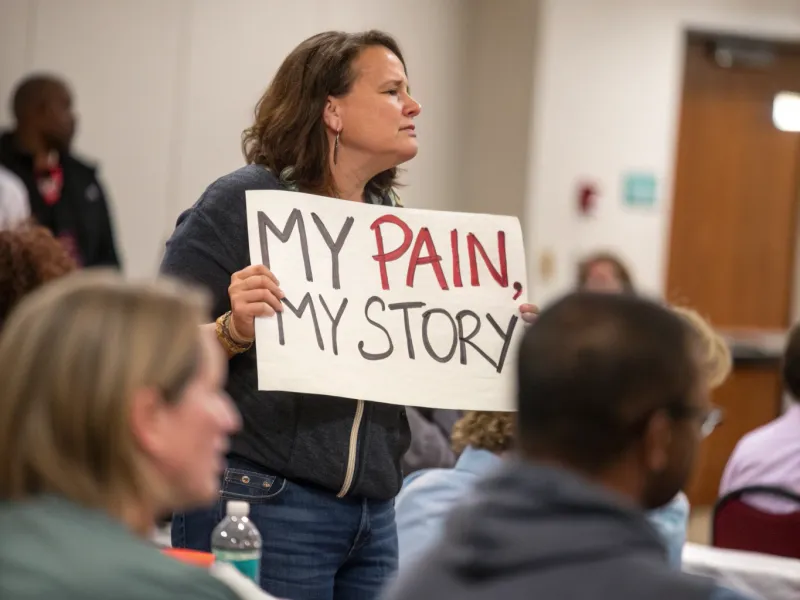
Validation from others is nice—but not required. When deciding to go no contact, you may feel the urge to justify your choices to those who won’t understand.
The truth is, some people are committed to misunderstanding you, clinging to their narratives. It’s draining to constantly defend your experiences against those who refuse to listen.
Accept that your pain doesn’t need to be explained to everyone. Hold your truth close, and allow yourself the peace of mind that comes with not needing external validation. Your story is yours alone.
6. You can love someone and still protect yourself from them

Boundaries don’t erase love—they define it. Loving someone doesn’t mean sacrificing your safety or sanity.
It’s possible to hold love in your heart while simultaneously recognizing the need to keep your distance. Setting boundaries is not about shutting people out; it’s about protecting your space and peace.
This duality is often misunderstood, but it’s vital for healthy relationships. You’re not abandoning love by prioritizing your well-being. Instead, you’re embracing a healthier form of love—one where respect is mutual and boundaries are honored.
7. Healing begins when the abuse ends

Distance gives clarity. Clarity gives freedom. It’s challenging to heal in the same environment where the pain was inflicted.
Once you step away, the fog of abuse starts to lift, revealing a clearer path to healing. You begin to see patterns, understand triggers, and slowly untangle the knots of your past.
The journey is gradual, but it’s essential to start anew, free from the chains of past hurt. Healing is possible, and it starts with the courageous step of breaking away.
8. Your parents’ wounds are not your responsibility to heal
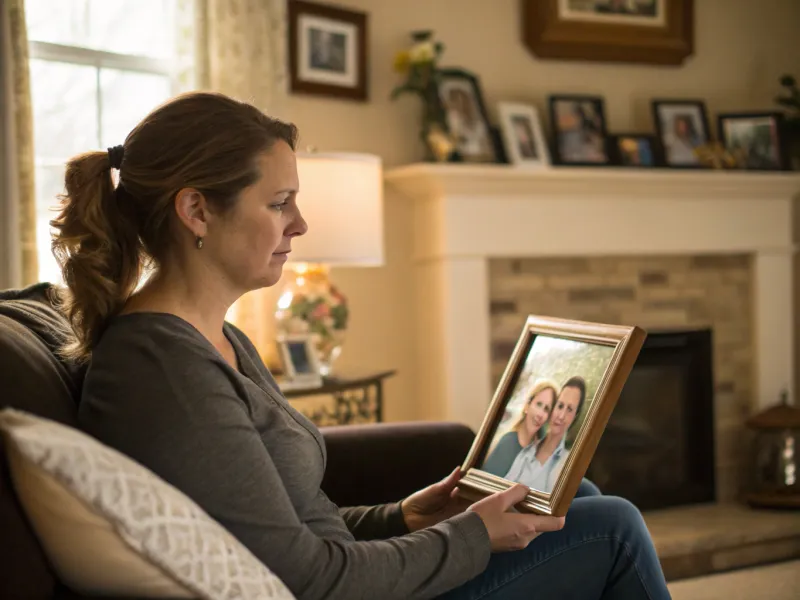
Compassion has limits. Especially when it’s destroying you. We often feel obligated to mend the wounds of our parents, assuming their struggles are ours to bear.
However, their healing isn’t your burden. It’s important to recognize that while empathy is noble, it shouldn’t come at the expense of your well-being.
Accepting this doesn’t mean you lack compassion; it signifies understanding your limits. Prioritize your healing, knowing that you can’t pour from an empty cup. Your responsibility is to yourself first.
9. Family isn’t always built by blood—it’s built by safety, consistency, and care
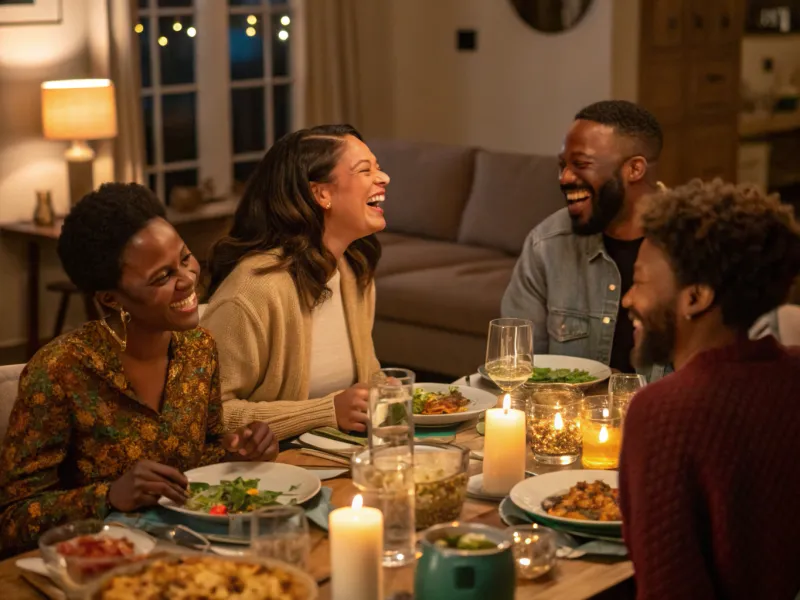
Chosen family counts. Deeply. Blood relations might not always meet your emotional needs, but family can be formed in unexpected places.
Seek those who offer safety, consistency, and genuine care—traits that transcend biological ties. These bonds, often more profound, create a richer tapestry of connection.
Celebrate the family you choose, knowing it’s built on mutual respect and love. Blood isn’t thicker than water; it’s the strength of the bond that truly matters.
10. Missing them doesn’t mean you made a mistake

Grief and growth can exist in the same breath. Missing someone after cutting ties is natural—it doesn’t necessarily reflect the wrong decision.
Reminiscing about good times doesn’t invalidate your choice; it acknowledges the complexity of human relationships.
Understand that longing is part of the process, and it coexists with your journey towards healing. Embrace these feelings as reminders of your strength and the necessity of your decision.
11. You get to rewrite your identity

You’re not who they said you were. You never were. Breaking away gives you the chance to redefine yourself outside of imposed family labels.
This new freedom allows you to explore your interests, passions, and values without judgment.
Reclaiming your identity is empowering, enabling you to craft a narrative that aligns with your true self. Embrace the opportunity to be authentically you, unburdened by past assumptions.
12. You’ll learn who’s safe by how they respond to your truth

Not everyone deserves your full story. As you share your truth, observe the reactions of those around you. Their responses will reveal who truly supports you.
Those who listen without judgment, offering empathy and understanding, are your safe havens.
Conversely, those who dismiss or belittle are not deserving of your vulnerability.
This process helps you identify genuine connections, strengthening your support network. It empowers you to align with those who honor your journey.
13. Your inner child will need your love more than ever

You’ll become the parent you never had. As you heal, your inner child will seek comfort and reassurance. Nurturing this part of yourself is crucial for healing.
Provide the love and support that were missing during your formative years. This practice fosters self-compassion and growth.
Be patient with yourself, understanding that healing your inner child strengthens your emotional foundation.
In caring for this vulnerable part, you unlock profound personal transformation.
14. You are allowed to create joy, softness, and peace—without apology

Even if they never taught you how. Growing up in a tumultuous environment may have stifled your ability to embrace joy and peace.
However, as you distance from toxicity, the opportunity to create these experiences arises.
Crafting a life filled with joy, softness, and peace is your birthright—no apologies needed.
Celebrate this newfound freedom by exploring activities and relationships that enrich your life. Embrace happiness as an essential part of your journey.
15. You didn’t walk away to punish them—you walked away to save yourself

And that is enough. The decision to sever ties is often misunderstood as an act of retribution, but it’s fundamentally about self-preservation.
Recognize that choosing yourself over persistent pain is a courageous move.
It’s about reclaiming your life, not as a punishment to others, but as a necessary step towards healing.
Accept that your journey is valid, and that prioritizing your well-being is an act of profound self-love.
16. They continually disrespected my boundaries
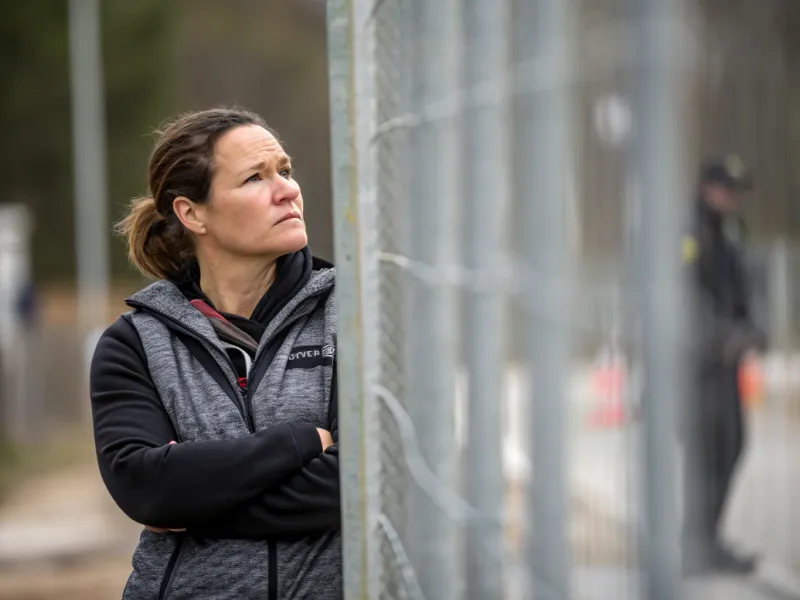
No matter how many times I tried to set them. Consistently having boundaries ignored erodes trust and self-esteem.
Every attempt to establish limits is met with disregard, leading to an environment of perpetual discomfort.
Recognize the importance of boundaries as a form of self-care and a necessary component of healthy relationships.
Choosing to walk away is an act of reclaiming your power, ensuring your needs are respected elsewhere.
17. Gaslighting was their native language

They denied my reality until I almost did, too. Gaslighting undermines your perception, making it difficult to trust your instincts.
Constant manipulation blurs truth, leading to self-doubt and confusion.
Breaking free means acknowledging the manipulation and reclaiming your sense of reality.
This awareness is the first step toward healing, allowing you to trust your perceptions again and regain control over your life.
18. Everything was always about them

My pain, my needs, my voice? Inconvenient. Living in an environment where others consistently overshadow your experiences is exhausting.
Your emotions become secondary, and your worth feels diminished.
Recognizing this dynamic is crucial—your needs matter, and you deserve to be heard.
Choosing to distance yourself is an act of self-affirmation, prioritizing your voice and well-being.
19. They used love as a weapon

Affection came with strings, silence, or shame. Love should never be conditional or manipulative.
Experiencing love tainted by control distorts its true nature. This manipulation creates a cycle of dependency and fear.
Walking away means reclaiming authentic love, free from manipulation.
Remember, love should empower, not trap. Prioritize relationships built on mutual respect, where love is freely given.
20. I was the scapegoat. Always

Blamed. Shamed. Never truly seen. Being the scapegoat means bearing the brunt of family’s dysfunctions.
This role falsely attributes fault, leading to feelings of inadequacy.
Recognizing this pattern is vital—your worth isn’t tied to their narrative.
Walking away allows you to redefine your identity, free from blame and shame. Embrace the liberation that comes with no longer being their target.
21. Their version of “family” demanded silence and submission

I wanted connection—not control. A family dynamic that demands silence stifles authentic expression and growth.
This authoritarian approach negates individuality and fosters resentment.
Break free from the chains of imposed silence.
Seek environments where your voice is valued and your individuality celebrated. Recognize that true family encourages growth, not submission.
22. My mental health was declining under their presence

Anxiety. Self-doubt. Emotional exhaustion. It’s hard to thrive when surrounded by negativity.
Constant exposure to dysfunction drains your mental reserves, affecting your health.
Recognize that your mental well-being is paramount. Stepping away provides the space needed to heal and rediscover your peace.
Your mental health deserves priority. Choose environments that nurture, not drain, your spirit.
23. They minimized my trauma—again and again

“If it was so bad, why didn’t you say something sooner?” Constantly having your trauma dismissed invalidates your experiences.
This minimization is damaging, creating self-doubt and perpetuating silence.
Your experiences are real, and your feelings valid. Don’t let others dictate the significance of your trauma.
Distance yourself from those who refuse to acknowledge your truth, and seek supportive spaces for healing.
24. Every interaction felt like walking into a minefield

One wrong word could trigger an explosion. Living in a perpetual state of alertness is draining.
Such volatility makes genuine connection impossible, fostering anxiety and fear.
Walking away means choosing stability and peace over unpredictability.
You deserve interactions that uplift, not threaten. Seek environments where communication is healthy and encouraging.
25. Apologies were rare—and never sincere

Accountability? Nonexistent. Apologies that lack sincerity are empty, serving only to pacify without change.
This pattern erodes trust, making reconciliation impossible.
Recognize that genuine apologies involve accountability and change.
Demand relationships that honor honesty and growth, where apologies are meaningful and lead to positive change.
26. They made me question my worth

For years, I measured myself against their emotional unavailability. Constant criticism and neglect distort self-perception.
This environment fosters feelings of inadequacy and unworthiness.
Recognize that your worth isn’t defined by others’ inability to appreciate you.
Distance yourself from environments that undermine your confidence, seeking spaces that affirm your value and potential.
27. They criticized who I am instead of celebrating me

My choices, identity, voice? Always wrong. Being criticized for being true to yourself stifles authenticity and growth.
A lack of acceptance leads to self-doubt and conformity.
Choose to walk away from environments that criticize rather than celebrate.
Surround yourself with those who honor your individuality and support your journey. You deserve to be celebrated for who you are.
28. Staying in contact meant staying small

I had to shrink to fit inside their definition of “acceptable.” Constantly adjusting to fit someone else’s mold is suffocating.
This dynamic limits potential and self-expression.
Choosing to break free allows you to expand into your true self.
Seek environments that encourage growth and exploration, where you can flourish without restriction. Embrace the freedom to be unapologetically you.
29. They weaponized tradition and “family values” to guilt me
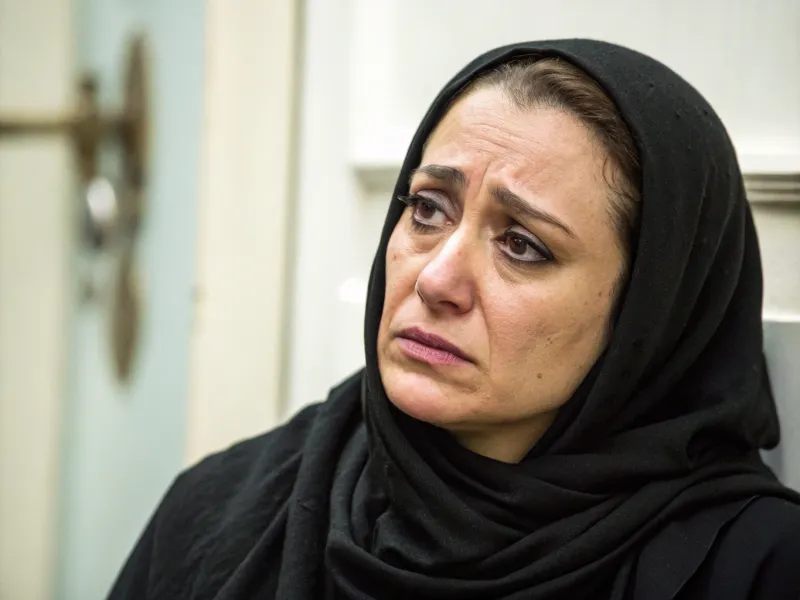
But values mean nothing without respect. Traditions can be beautiful, but when used to manipulate, they become chains.
This guilt can stifle individuality and autonomy.
Recognize that true values are rooted in respect and support, not control.
Distance yourself from environments that use tradition as a weapon, seeking spaces where values uplift and empower.
30. I finally realized: I can love myself more than I fear disappointing them

And that truth changed everything. For so long, fear of disappointment kept me tethered to toxic dynamics.
But self-love is powerful, overriding the need to meet others’ expectations.
Recognize that loving yourself fully is the key to liberation.
Embrace the freedom that comes with prioritizing your well-being over the fear of letting others down. This realization is transformative, opening doors to a life where you are in charge of your happiness.







